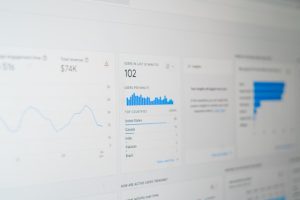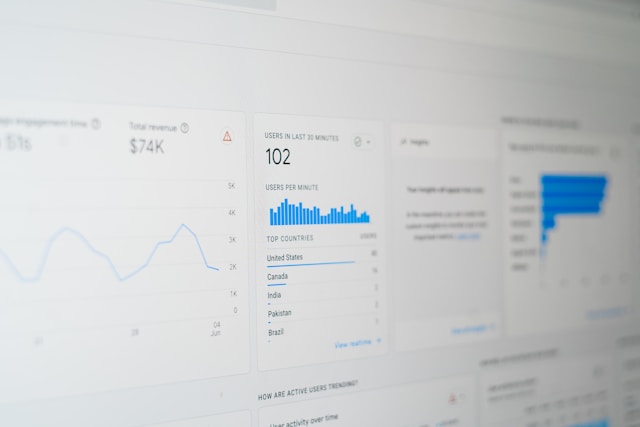Want to boost your WordPress website’s visibility and reach a wider audience? Dive into the world of SEO for WordPress! Discover how to optimize your site, improve search engine rankings, and attract more organic traffic. From keyword research to on-page optimization, learn the strategies that can help your site stand out in the crowded online space. Stay ahead of the competition by mastering the art of SEO tailored specifically for WordPress websites. Ready to take your online presence to the next level with WordPress SEO best practices and search engine optimization? Let’s explore the power of SEO for WordPress together.
Key Takeaways

-
Understanding SEO Basics: Ensure you grasp fundamental SEO concepts like keywords, meta tags, and quality content to lay a strong foundation for your WordPress site’s optimization.
-
Optimizing WordPress for Search Engines: Implement SEO best practices specific to WordPress, such as optimizing permalinks, creating an XML sitemap, and improving site speed for better search engine rankings.
-
Managing Site Visibility: Pay attention to robots.txt, noindex tags, and canonical URLs to control how search engines crawl and index your WordPress site effectively.
-
Utilizing SEO Plugins and Tools: Leverage popular SEO plugins like Yoast SEO or All in One SEO Pack to streamline optimization tasks and improve your site’s visibility in search results.
-
Addressing Common SEO Issues: Stay vigilant against duplicate content, broken links, and slow loading times by regularly auditing your WordPress site and promptly fixing any identified issues.
Understanding SEO Basics
Importance for WordPress Sites
WordPress.com sites are inherently optimized for search engines, offering a solid foundation for SEO efforts. By setting Privacy Settings to public, site content becomes accessible to search engine crawlers, aiding in indexing and visibility. SEO plays a crucial role in enhancing a WordPress site’s visibility and ranking on search engine results pages.
Common SEO Mistakes
Neglecting keyword research and optimization can lead to missed opportunities for targeting relevant search terms. Using duplicate content across pages can negatively impact search rankings due to decreased relevance. Proper utilization of meta tags and descriptions is essential for improving click-through rates and conveying page relevance to search engines.
Best Practices Overview
Regularly updating site content is vital to maintain relevance and keep visitors engaged, signaling freshness to search engines. Implementing a responsive design ensures optimal user experience across various devices, contributing to improved SEO performance. Prioritizing the acquisition of high-quality backlinks helps in establishing domain authority and enhancing search engine ranking.
Optimizing WordPress for Search Engines
URL Structure Tips
Creating clean and descriptive URLs is crucial for effective WordPress SEO optimization. Ensure that the URL reflects the content of the page accurately. By doing so, search engines can easily understand and categorize your content.
When structuring URLs, use hyphens to separate words instead of underscores or spaces. This practice enhances readability for both users and search engine crawlers. Clear and concise URLs contribute to a positive user experience and improve SEO rankings.
Avoid incorporating unnecessary parameters or numbers in URLs. Keeping URLs simple and free from unnecessary characters helps maintain clarity and ensures that search engines can index your website efficiently.
Conducting Keyword Research
To enhance your WordPress SEO efforts, utilize tools like Google Keyword Planner to identify relevant keywords for your content. Understanding the search terms your target audience uses is essential for optimizing your website effectively.
Analyze competitor keywords to gain insights and discover new opportunities for content creation. By identifying gaps in keyword targeting, you can tailor your content strategy to attract more organic traffic and improve search engine visibility.
Focus on long-tail keywords when conducting keyword research. Long-tail keywords are specific phrases that target niche audiences, allowing you to reach users who are actively searching for particular information or products.
Internal Linking Strategies
Incorporating internal links within your WordPress site is a key aspect of SEO strategy. Internal linking helps guide users to related content, improving navigation and encouraging visitors to explore more pages on your site.
Use descriptive anchor text when creating internal links. Anchor text provides context about the linked page’s content, helping search engines understand the relationship between different pages on your website.
Regularly audit internal links to ensure they remain functional and relevant. Broken internal links can negatively impact user experience and hinder search engine crawling, affecting your site’s overall SEO performance.
Image Optimization Tips
Optimizing images is essential for enhancing your WordPress site’s SEO. Compress images to reduce file sizes without compromising quality. Faster loading times contribute to improved user experience and higher search engine rankings.
When adding images, use descriptive file names and alt text. Descriptive filenames help search engines understand the image content, while alt text provides accessibility benefits for visually impaired users and reinforces SEO efforts.
Implement responsive images on your WordPress site to ensure optimal display across various devices. Responsive images adapt to different screen sizes, enhancing user experience and boosting SEO performance.
Managing Site Visibility
Using XML Sitemaps
-
Generate an XML sitemap to assist search engines in indexing your site efficiently.
-
Submit the sitemap to Google Search Console for improved visibility and search engine access.
-
Update the sitemap regularly to ensure it reflects any new content or changes made.
Google Search Console Setup
-
Create a Google Search Console account to monitor your site’s performance effectively.
-
Verify site ownership to gain access to valuable insights and data regarding your website.
-
Utilize the performance report provided by Google Search Console to track keyword rankings and clicks accurately.
Enhancing Blog Post SEO
-
Craft compelling titles and headings that incorporate target keywords for better search engine optimization.
-
Utilize bullet points and subheadings within your blog posts to enhance readability and user engagement.
-
Encourage social sharing of your blog posts to boost visibility, increase traffic, and improve overall SEO.
Utilizing SEO Plugins and Tools
Recommended SEO Plugins
-
Explore Yoast SEO for comprehensive on-page optimization features.
-
All in One SEO Pack offers a user-friendly alternative for doing SEO effectively.
-
Utilize Rank Math for advanced SEO analytics and recommendations.
Performance Optimization Tools
-
Implement caching plugins to enhance site speed, such as WP Super Cache.
-
Use GTmetrix to analyze loading times and optimize website performance.
-
Monitor server response times with tools like Pingdom for a smooth user experience.
Security and SSL/HTTPS Transition
-
Transitioning to HTTPS is crucial for enhancing site security and trustworthiness.
-
Ensure all site resources are served over HTTPS to prevent mixed content issues.
-
Regularly updating WordPress and plugins is essential to maintain security standards.
Addressing Common SEO Issues
Site Not Showing on Google
When your website is not appearing on Google, first check the Privacy Settings to ensure the site is set to public for indexing. Verify if there are any manual actions or penalties affecting visibility. Make sure that the robots.txt file isn’t blocking search engine crawlers.
-
Ensure site is set to public in Privacy Settings
-
Verify no manual actions or penalties affecting visibility
-
Check robots.txt file for any blocks
Incomplete Search Results Info
If you’re experiencing incomplete search results, investigate potential indexing issues through Google Search Console. Review sitemap submissions to confirm that all pages are included. Make sure there are no technical errors hindering proper indexing.
-
Investigate indexing issues in Google Search Console
-
Review sitemap submissions for all pages
-
Confirm no technical errors impacting indexing
Editing Robots.txt File
To manage crawler access to your site, access the robots.txt file. Utilize directives within the file to allow or disallow specific pages from being indexed. Regularly update the file to reflect any changes in the site structure.
-
Access robots.txt file for crawler management
-
Use directives to control page indexing
-
Regularly update file for site structure changes
Final Remarks
In understanding SEO basics, optimizing WordPress, managing site visibility, utilizing plugins, and addressing common issues, you’ve equipped yourself with the tools to enhance your website’s search engine performance. By implementing these strategies, you can boost your online presence, attract more visitors, and ultimately grow your business. Remember to stay updated on SEO trends and continuously refine your approach to stay ahead of the competition.
Take action now. Apply the knowledge gained from this guide to optimize your WordPress site for search engines effectively. Your commitment to mastering SEO for WordPress will undoubtedly lead to increased visibility, organic traffic, and better engagement with your target audience. Keep refining and adapting your strategies to ensure long-term success in the dynamic digital landscape.
Frequently Asked Questions
What are the fundamental concepts of SEO covered in the blog post?
Understanding SEO Basics delves into keyword research, on-page optimization, and link building strategies necessary for effective SEO.
How can WordPress be optimized for better search engine visibility?
Optimizing WordPress for Search Engines involves using SEO-friendly themes, optimizing meta tags, improving site speed, and creating quality content.
What is the significance of managing site visibility in SEO?
Managing Site Visibility includes setting up robots.txt, sitemaps, and controlling indexing to ensure search engines crawl and index the right pages.
How can SEO plugins and tools enhance a WordPress website’s performance?
Utilizing SEO Plugins and Tools like Yoast SEO or Rank Math can assist in optimizing content, improving site structure, analyzing performance, and tracking keyword rankings.
What are some common SEO issues addressed in the blog post?
Addressing Common SEO Issues covers duplicate content, broken links, slow loading times, mobile responsiveness, and inadequate keyword optimization.

